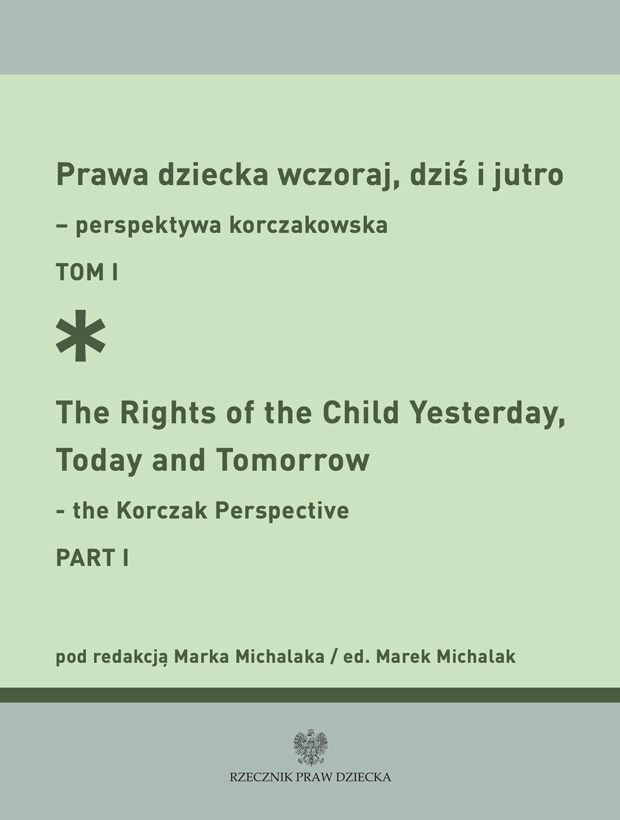For the sake of tomorrow, we ignore whatever makes the child happy, sad, surprised, angry or interested today. For the sake of that tomorrow which it does not understand, nor does it feel any need to understand. We steal many years of its life. […] The child thinks: I am nothing. Only adults are something. Now I am such a little older nothing. How many years am I supposed to wait?
This quotation from Korczak shows children’s rights as an integral part of the past, the present and the future; it points to the historical struggle for the recognition of the little person’s presence in culture, religion, society and the state. A child is not a human being in the making; it is an important member of the family, society and the global community. It has the right to be considered as a person, a citizen, a partner, an important and serious human being. It is for this kind of rights that people who understand children and childhood have fought for many years. The task has been by no means easy, since it requires overcoming traditional ideas and stereotypes. It took many years before children stopped being viewed as persons of no great import and a cheap labour force. We owe the changes in children’s status largely to those who studied and discovered childhood: people such as Jean-Jacques Rousseau, John Locke, Ellen Key, Maria Montessori, and most of all – Janusz Korczak.

